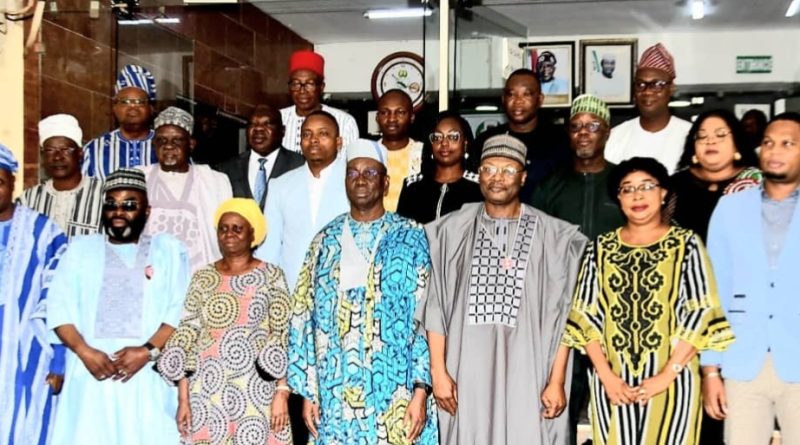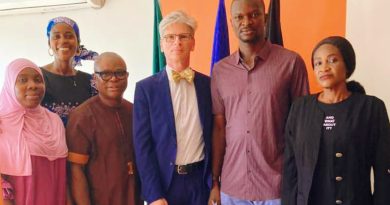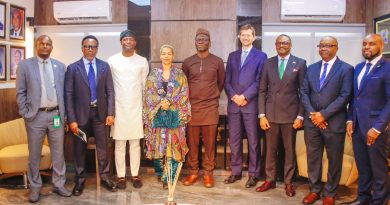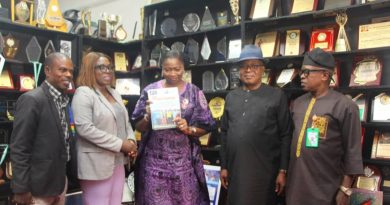BENIN REPUBLIC’S 2026 ELECTIONS: INEC Chairman Hosts CENA Delegation, Shares Electoral Insights
Oru Leonard
In a strong demonstration of regional cooperation, Nigeria’s Independent National Electoral Commission (INEC), received in audience a high-ranking delegation from the Commission Electorale Nationale Autonomie (CENA) of Benin Republic on Monday, December 16, 2024. The meeting, which held at INEC’s Headquarters in Abuja, underscored the shared commitment to advancing electoral excellence across West Africa.
Prof. Mahmood Yakubu, INEC Chairman, warmly received the delegation led by Dr. Sacca Lafia, President of CENA. He commended the delegation’s proactive approach in seeking to learn from Nigeria’s electoral experiences as they prepare for what promises to be a landmark election year in Benin.
“It is my pleasure to warmly welcome my friend and colleague, the President of CENA, Dr. Sacca Lafia, and other senior officials of CENA to INEC Nigeria,” Prof. Yakubu said, emphasizing the importance of regional collaboration in addressing shared electoral challenges.
Prof. Yakubu outlined the significant challenges ahead for Benin’s electoral commission, noting that the 2026 elections will be the most complex in the country’s history. Over a three-month period, CENA will oversee legislative and local elections in January, followed by a presidential election in April.
Recognizing the enormity of the task, CENA’s 12-member delegation—which includes the President of the Commission, 3 Commissioners, Directors, and other senior staff—focused their visit on understanding Nigeria’s proven electoral strategies. “CENA is interested in the legal framework for elections in Nigeria, the design and printing of election materials, recruitment and training of polling officials, election budgeting and payment systems, security arrangements, the use of technology, accreditation of observers, and stakeholder engagement,” Prof. Yakubu explained.
In response to CENA’s request for a Study Visit, INEC prepared a robust program covering every aspect of Nigeria’s electoral processes. Various INEC departments have been slated to make presentations and give in-depth insights on critical electoral activities and processes. Over the next 4 days, these interactions will showcase best practices and lessons learned from past elections.
Prof. Yakubu stressed the importance of peer learning in strengthening electoral processes. “Peer learning and support help strengthen processes. I want to assure CENA that we will fully share our experiences with you and provide relevant documents to enrich your understanding of our procedures,” he said.
The areas of discussion include:
*Legal frameworks and policies guiding elections.
*Development, design, and distribution of electoral materials.
*Recruitment, training, and deployment of polling officials.
*Election budgeting and transparent payment systems for service providers.
*Coordination of security measures during elections.
*The Use of Technology
*Accreditation of local and international election observers.
*Strategies for sustained stakeholder engagement.
In his remarks, Dr. Sacca Lafia expressed deep appreciation for INEC’s hospitality and the extensive preparations made for the visit. He reaffirmed Benin’s commitment to conducting free, fair, and credible elections in 2026.
“This visit is critical for us. Nigeria’s electoral strides have positioned INEC as a model for the region, and we are here to learn and implement those lessons in Benin,” Dr. Lafia said.
The INEC team that received the CENA delegation included National Commissioners: Maj. Gen. Modibbo Alkali (rtd) mni, Prof. Rhoda Gumus, Prof. Sani Adams and Prof. Abdullahi Abdu Zuru as well as the Secretary of the Commission, Mrs Rose Anthony-Oriaran. Others include Chief Technical Adviser (CTA) to the Hon. Chairman, INEC, Prof. Bolade Eyinla; Chief Press Secretary (CPS) to the Hon. Chairman, INEC, Rotimi Oyekanmi, and Directors of the Commission.
(INEC Media)




